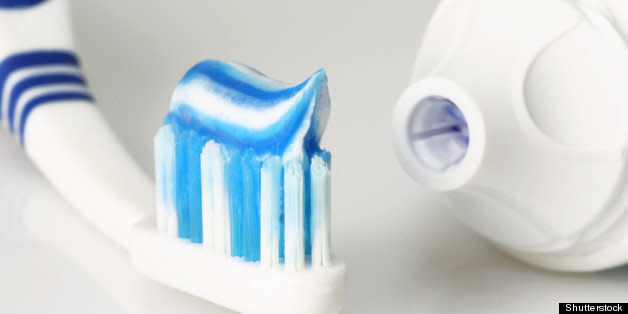Fluoride Loosens Bacterial Grip On Tooth Enamel

By Karen Hopkin
(Click here for the original article and podcast)
Fluoride helps fight cavities. That's why it's inour drinking waterand toothpaste. But how this mineral works its dental magic is still somewhat mysterious. Now, researchers offer an incisive solution. They find that fluoride treatment can loosen bacteria's grip on tooth enamel. The study is in the journalLangmuir. [Peter Loskill et al.,Reduced Adhesion of Oral Bacteria on Hydroxyapatite by Fluoride Treatment]
Scientists used to think that fluoride could harden tooth enamel, helping it retain the minerals that protect teeth from the acid produced by our oral flora. But recent work has shown that fluoride doesn't really penetrate past the tooth's thinnest outer layer, suggesting that something other than hardening is going on.
To drill deeper into this toothsome mystery, researchers whipped up a set of artificial choppers, made of the same stuff as teeth. And they used atomic force microscopy to take a closer look at how bacteria interact with this dental material. They found that three different strains of cavity-causing bugs cling less tightly to enamel that's been rinsed withfluoride.
The bacteria carry a net negative charge on their surfaces. So the negatively charged fluoride ions in the treated enamel may be literally repulsive to the bacteria. Which causes them to bite the dust.
This article originally appeared on HuffPost.

